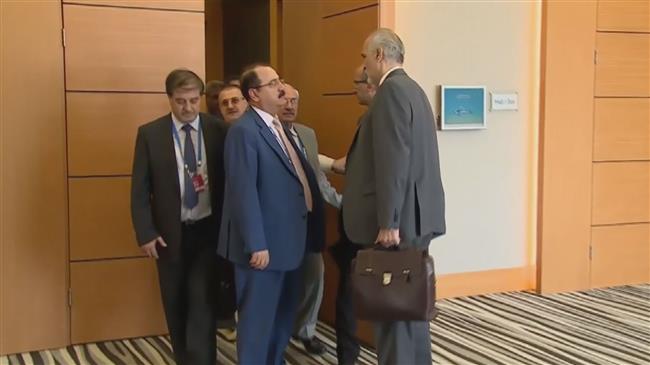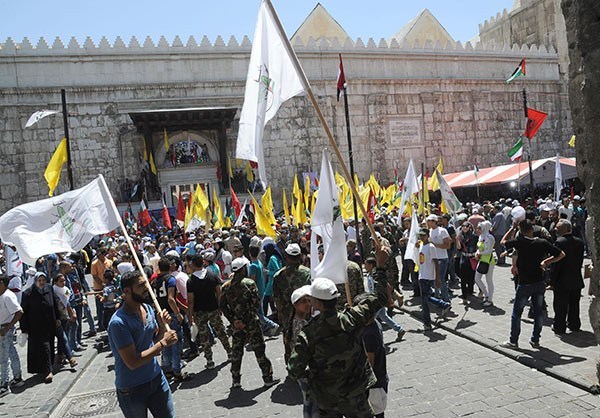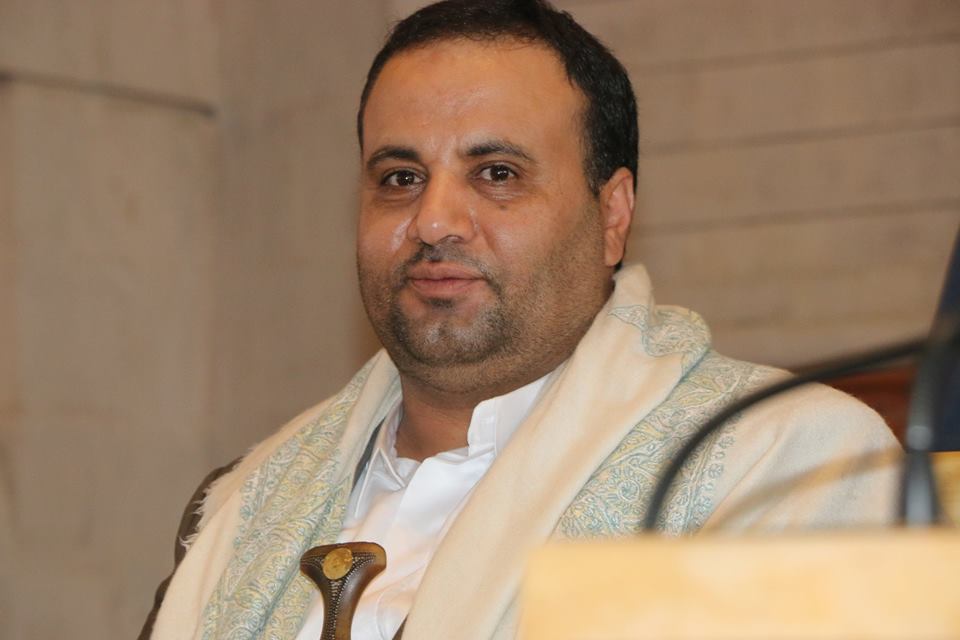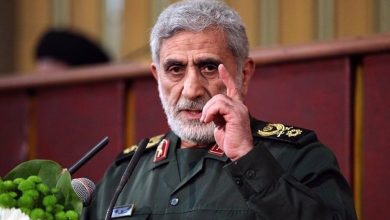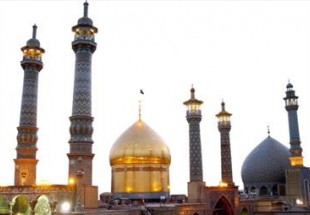Iran rejects zionist regime accusation over oil tanker attack
Iranian Foreign Ministry Spokesperson Nasser Kan'ani rejected the claims raised by the Israeli regime's Prime Minister who accused Iran of attacking an oil tanker in the Persian Gulf last week.

The Zionist regime has gotten used to making accusations like its main supporter, the US government, Kan’ani stated in his weekly press conference on Monday morning.
Israeli regime’s Prime Minister Benjamin Netanyahu baselessly claimed on Sunday that Iran was responsible for an alleged attack on an oil tanker in the Persian Gulf last week.
“Last week Iran again attacked an oil tanker in the Persian Gulf and harmed the international freedom of navigation,” Netanyahu claimed at a weekly cabinet meeting.
Stressing that Iran is among the most effective countries in maintaining the security and freedom of sailing in international waters, the senior Iranian diplomat cited, “Iran will continue its efforts in maintaining the security and freedom of sailing in international waters and is among the countries that have played a very effective and determining role in this field so far.”
“We are among the countries that emphasize the necessity of creating comprehensive security for all countries in order to use shipping opportunities in international waters,” Kan’ani said, adding, “But a regime that endangers the security of others and does not adhere to the security of others exposes itself to mutual threats.”
Not inviting Iran, Russia to Munich Security Conference egregious mistake
Elsewhere in his remarks, the Iranian foreign ministry spokesman criticized the approach of several countries toward Iran and said that Iranophobia has been an old policy of several states, including the US regime and the Zionist regime, against Iran for more than 4 decades.
Stressing that the Islamic Republic of Iran is an effective country in the field of security in the regional and international arena, Kan’ani emphasized, The fact that they prevented Iran from attending the Munich Security Conference shows that Iran’s voice is accepted in the world arena.
“Iran will follow its constructive approach in regulating relations with different countries based on a balanced and dynamic foreign policy,” he added.
The Munich Security Conference, which, of course, we believe was organized in the name of security, but for the sake of war and warmongers, should give an equal opportunity to all members of the international community to express their views and assessments regarding the opportunities and challenges related to international security and global order and the mechanisms that help to consolidate and strengthen stability and security, he added.
Not inviting Iran and Russia to this conference means that they took the opportunity to propose different and multilateral views on international order and security and gave it to a party that seeks to consolidate unilateralism in the international arena. “It is a gross mistake that the organizers of this conference made,” he added.
“It was a huge mistake. They dealt a fundamental and serious blow to the credibility of the Munich Security Conference,” Kan’ani emphasized, adding that inviting the son of a deposed dictator was another mistake made by the organizers of the conference.
“Inviting them is gross interference in the internal affairs of a large country. Iran’s role in the past years, especially in the last decade, in dealing with terrorism and ISIL has greatly contributed to the security order. The big mistake made this year by the organizers of the conference and the German government was to give the opportunity to the warmongers,” he stressed.
We hope that the German government and the organizers of the Munich Security Conference will make up for their gross mistake next year and regain their lost credibility, Kan’ani cited.
Iranian FM to visit Baghdad in near future
Iranian Foreign Minister Hossein Amir-Abdollahian is scheduled to pay a visit to Baghdad in near future to discuss bilateral issues, Kan’ani said, adding that the top Iranian diplomat is expected to have another trip as well.
Iran committed to the NPT, Comprehensive Safeguards Agreements
Reacting to the media allegations of 84% uranium enrichment in Iran, Kan’ani stated that Iran is committed to the NPT and the Comprehensive Safeguards Agreements and attaches great importance to professional cooperation with IAEA.
“Of course, in return, we expect the agency (IAEA) to behave professionally in connection with Iran’s peaceful nuclear activities and adhere to the principles and frameworks of professional and specialized cooperation with member countries, including Iran,” he added.
Citing that the political use of IAEA distorts the professional status of this important international organization, the senior Iranian diplomat noted that such matters should be discussed in technical and specialized interactions and bilateral meetings, and bringing up such issues in the media is a sign of the agency distancing itself from its professional behavior and specialized position.
Elsewhere in his remarks, Kan’ani touched upon the JCPOA revival talks, saying, “The framework of the negotiations related to the lifting of unilateral and oppressive sanctions against Iran and the responsible return of all parties to the agreement is clear and should continue in the same framework, and We hope that the agency will fulfill its professional and helpful duties within the framework of the professional and specialized duties assigned to it in connection with the nuclear agreement.”
Kan’ani also announced that planning for the trip of the delegation from the IAEA to Tehran is underway and it can happen as soon as the preparations are done.
A report by Bloomberg claimed, “the International Atomic Energy Agency (IAEA) is trying to clarify how Iran accumulated uranium enriched to 84% purity.” It added that the IAEA inspectors had found highly enriched uranium particles “within the network of pipes connecting centrifuges used to separate uranium isotopes.”
The spokesman for the Atomic Energy Organization of Iran (AEOI) Behrouz Kamalvandi has categorically rejected the report by Western media that it has enriched uranium to levels above 60 percent purity, saying the country’s nuclear facilities have never enriched uranium above that level.
Favorable efforts made regarding prisoner swap
Answering a question regarding the prisoner swap, Kan’ani stated that favorable efforts were made and consular dialogues were held with some countries in this regard.
The spokesman also touched upon a media report that claimed the US is conducting indirect negotiations with Iran regarding the exchange of prisoners with the mediation of Qatar and the UK.
“There are indirect negotiations, and we confirmed it before,” he said, adding that the exchange of prisoners between Iran and the US was about to take place but was not realized due to the US government’s welsh.
Tehran-Seoul ties should not be affected by Iran-US relations
Saying that Seoul is obliged to pay its debt to Iran, Kan’ani stressed that the relations between Tehran and Seoul shouldn’t be dependent on Tehran-Washington ties.
The Korean government claims that the US government’s sanctions against Iran prevent the repayment of Iran’s financial claims but is not acceptable at all, he stressed.
Referring to the non-constructive position of the South Korean president, the spokesman said that Seoul did not take the necessary legal action and acted completely unprofessionally and should compensate.
Iran calls on Azerbaijan to adhere to diplomatic framework
Referring to the recent baseless claims cited by the Azeri president, Kan’ani said that Iran hopes that the Azeri side adheres to the diplomatic framework and methods and avoids unprofessional methods when an issue can be resolved within the framework of friendly relations, and diplomatic methods, as well as technical and legal frameworks.
“Iran seeks friendly relations with its neighbors and we hope that the neighboring countries are also committed to this issue,” he continued.
Resuming Iran-Saudi Arabia ties waiting for Riyadh’s political will
Speaking of Tehran-Riyadh ties, the senior Iranian diplomat stressed that Iran is definitely interested in returning relations to the natural track.
Hailing the Iraqi government’s constructive role in this regard, Nasser Kan’ani noted, “If the main focus is on the interests of the two countries, there is no fundamental obstacle for the return of political relations to its natural state.” It requires the political will of Saudi Arabia, he continued.
